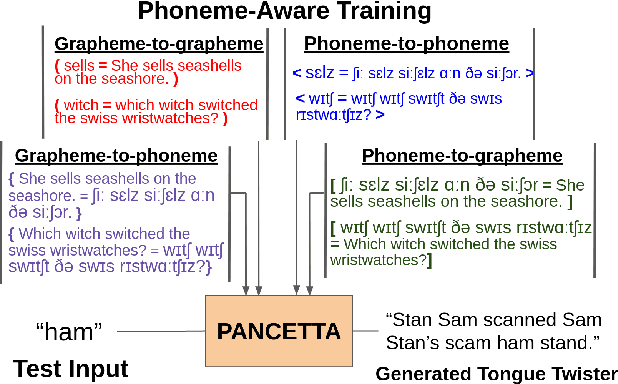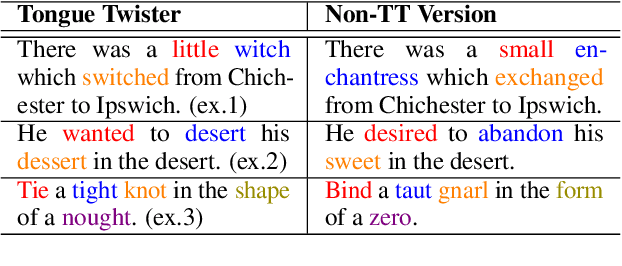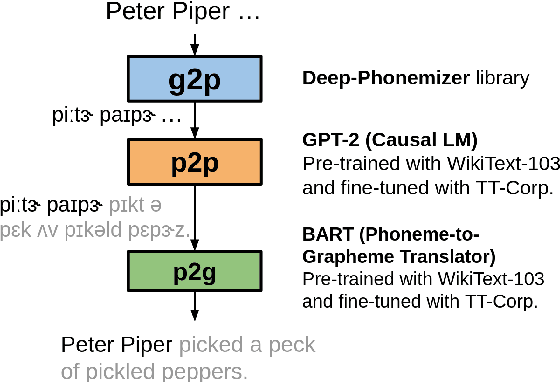PANCETTA: Phoneme Aware Neural Completion to Elicit Tongue Twisters Automatically
Paper and Code
Sep 13, 2022



Tongue twisters are meaningful sentences that are difficult to pronounce. The process of automatically generating tongue twisters is challenging since the generated utterance must satisfy two conditions at once: phonetic difficulty and semantic meaning. Furthermore, phonetic difficulty is itself hard to characterize and is expressed in natural tongue twisters through a heterogeneous mix of phenomena such as alliteration and homophony. In this paper, we propose PANCETTA: Phoneme Aware Neural Completion to Elicit Tongue Twisters Automatically. We leverage phoneme representations to capture the notion of phonetic difficulty, and we train language models to generate original tongue twisters on two proposed task settings. To do this, we curate a dataset called PANCETTA, consisting of existing English tongue twisters. Through automatic and human evaluation, as well as qualitative analysis, we show that PANCETTA generates novel, phonetically difficult, fluent, and semantically meaningful tongue twisters.
 Add to Chrome
Add to Chrome Add to Firefox
Add to Firefox Add to Edge
Add to Edge